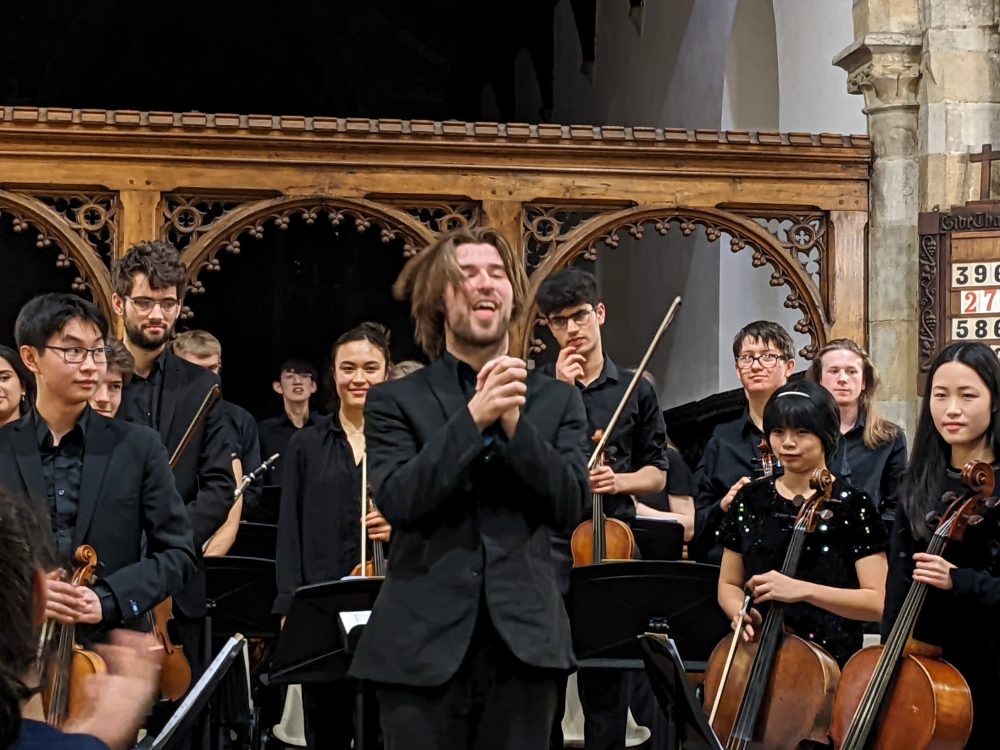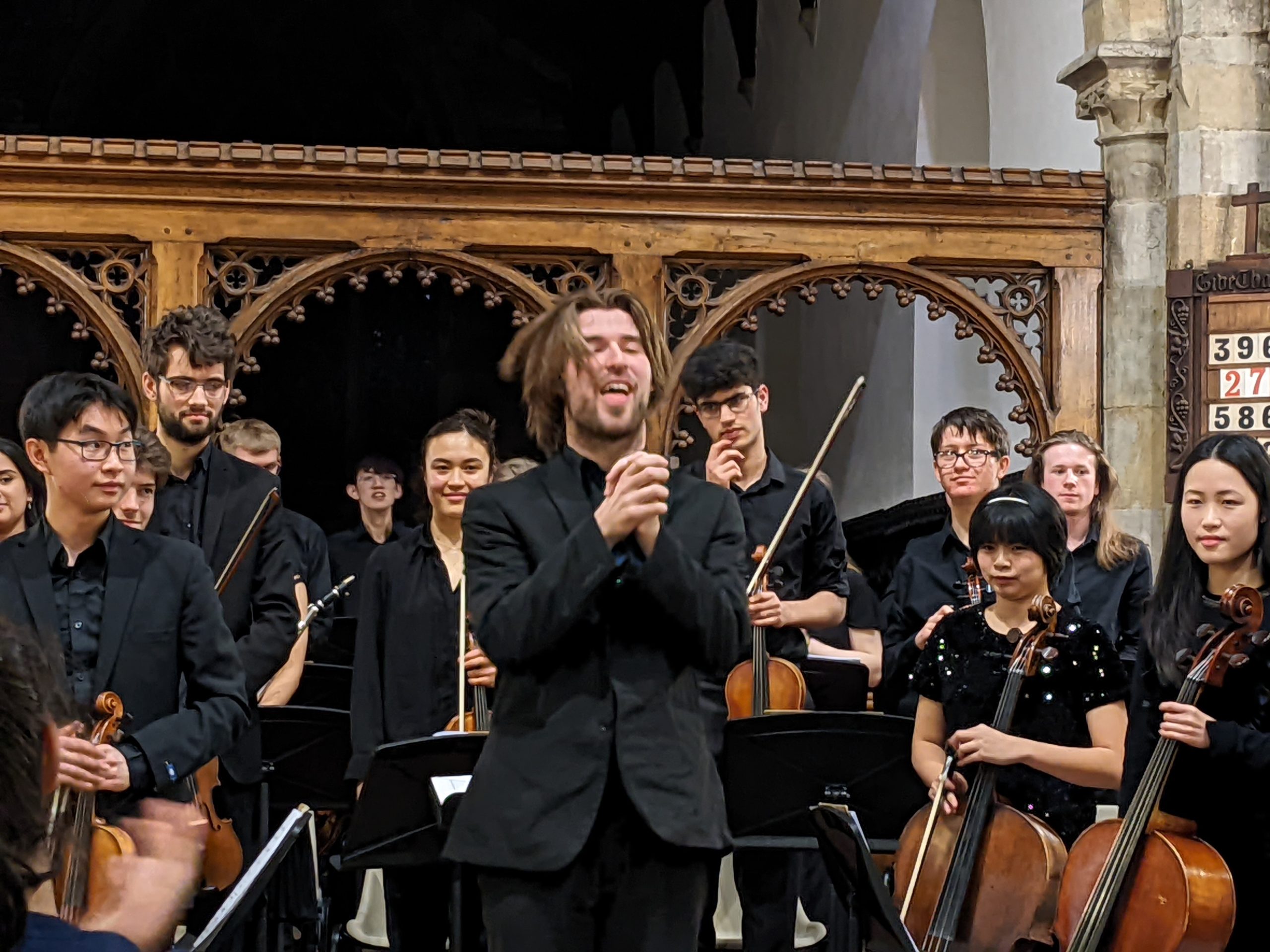Durham University Chamber Orchestra’s concert was a perfect programme for an early Friday evening concert, serving up a musical equivalent of pre-dinner drinks. The fact that it was a lovely Spring evening and the last night of term only added to the playful atmosphere – this was a concert that promised utter pleasure.
Mozart’s Overture to The Marriage of Figaro got things off to a fizzing start, with light, agile playing and some really nice punchy accents, particularly from the brass and winds. This energy continued into Mozart’s Piano Concerto No.23 where conductor Leo Zagorac created lots of colourful contrast. The final movement picked up on the joyful excitement of the Figaro overture and the first movement was full of light, with elegant playing from the flutes, clarinets and bassoons in their conversational little trio.
Unfortunately, the concerto suffered from the poor quality of the piano at St Oswald’s church, which was harsh, jangly, unresponsive and clearly hadn’t been tuned for quite some time. Durham University has been heavily promoting its new partnership with Steinway, and celebrating the fact that it will become an ‘all-Steinway university’, but sadly the lack of a proper concert hall in the city means that there are no university performing arts spaces suitable even for a small orchestra, leaving student ensembles to make do with the city’s churches. Durham is regularly ranked as the top university in the country for music but for performance spaces it sadly lags behind its neighbours at Newcastle and Northumbria who both have large halls with Steinway grands. It was a great pity because I think soloist Risako Takamura would have done something very beautiful with this concerto if only she’d had a better instrument. She coaxed wonderfully crisp articulation out of the instrument in the outer movements but sadly the piano’s lack of responsiveness was a serious impediment.
My disappointment with the Mozart dissipated like smoke with the first tight, spiky phrases of Poulenc’s Sinfonietta. Although it felt quintessentially Parisian, this playful four-movement piece was actually written for the BBC to celebrate the first anniversary of The Third Programme (Radio 3 as we know it now) in 1947. It plays on 18th century music in the same way as Prokofiev’s Classical Symphony, and is infused with a breezy optimism that seems to look back to the frolics of the 1920s and forward to a brighter future.
There was a lot of fun and a light irony to this performance, but Leo Zagorac also made the most of the more lyrical moments. At the end of the second movement there was a lovely lift at the top of each phrase and the fourth movement had an effortlessly stylish swing. The ensemble was slightly out in a couple of places but they quickly pulled back together. The lower strings added a smoky tone that contrasted with a good steely bite from the violins in the livelier passages and their pizzicato in the first movement added a good drive.
The DUOS ensembles are on particularly fine form at the moment, and there were some outstanding wind and brass solos. Trumpeters Clara Falkowska and Emily Vaughan-Williams simply shone, with sultry muted passages, jazzy inflections and cleanly executed flutter-tonguing and trills. The wind solos in the third movement threaded their way nicely through the texture and I particularly enjoyed Matthew Pearson’s lyrical clarinet solo at the start of this movement
This piece was new to me, and based on this performance, I’ll be heading straight off to get a recording, and perhaps some champagne to go with it.







